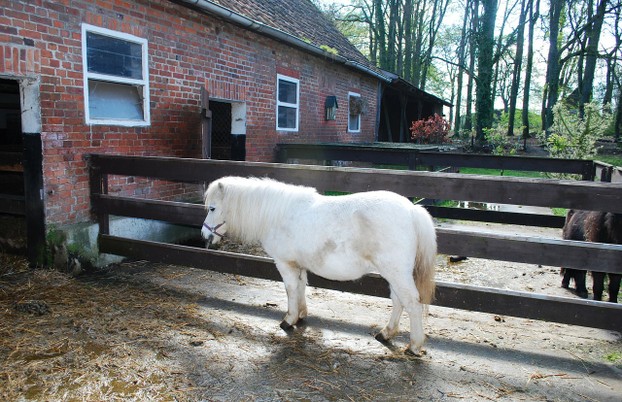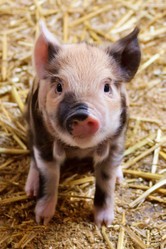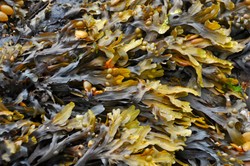I regularly read Country Smallholding and Permaculture and my eyes rove to the advertisements selling smallholdings. Many show a lovely house with a few acres of land, but the price is enormous, way beyond my reach.My neighbour on the allotment bought one some time ago, but she was very well off. But you do not have to buy a massively expensive house, for some smallholders simply get hold of a field and make the most of it; and for many it is a very happy experience.
Firstly, though, let us be realistic about land.Agricultural land is divided into prime and marginal. In Britain prime agricultural land is very expensive and the price goes on rising. You will be lucky to snap up a field. But marginal land is cheaper, and it is often land like this that aspiring smallholders purchase. Often such land is in the hillier parts of the country, far from the cities, or on the margins of industrial towns. And note, you do not need a beautiful view for a smallholding to work.There are urban farms in run down inner city areas.
But you must think of the legal side of your endeavour and learn all the laws relevant to your enterprise. In the UK you must register your holding with the government, who will give you a number which you quote on all correspondence. You must also learn the regulations pertinent to the stock that you hold, for there is legislation concerning animal welfare, movements from the farm and slaughtering, too complex for me to go into in this article. Smallholders who offer food products made on their premises must ensure that their production system meets all the hygiene laws,which in the UK are strict.
You need also to arrange the business side of the operation, for the economics must be right.Many smallholders combine a small farm with a job or another business. Some offer courses to other would-be smallholders or growers, and others publish books or offer specialist food products. Sometimes one member of a couple works on the holding during the week while the other works in a conventional job, this spreads the economic risks and brings in a more regular supply of money.Many businesses fail because of cash flow problems, so would-be smallholders need a business plan that prevents these from happening. You can never do without a business plan with proper revenue forecasts.
Smallholders must weigh up their physical capacity, as they must not take on a load that is too much for them. This is especially so as they age. Dealing with heavy weights might be less easy for people in their sixties, and there are times when older people feel tired and need to rest. But also smallholders need to ensure that both members of a couple are not only well, but are enthusiastic for the lifestyle, and there are marriages that have broken down because one went grudgingly along with the other partner's dream, for a while.








 Pilgrimage. A reviewon 06/15/2025
Pilgrimage. A reviewon 06/15/2025
 Leo the Fourteenthon 05/09/2025
Leo the Fourteenthon 05/09/2025
 The Melsonby Hoardon 03/25/2025
The Melsonby Hoardon 03/25/2025



Comments
Finland has nothing to do with Finland. A fen is a name for a bog.
Thank you for your comment below in answer to my previous observation and question.
Your comment Feb. 20, 2023, mentions "the large expanses of Finland in East Anglia."
Why might a part of East Anglia be named after Finland?
Maybe three hours
Thank you for your comment below in answer to my previous observation and question.
The automobile and the train trips sound quite welcoming in their variedly beautiful scenery, from inland hills to sea coasts.
How long would the train trips from Carlisle and from northwest England take?
There are several routes that you could travel. There is a train route that goes to and from Car.isle in the North of England via an impressive viaduct. Journeying north from Manchester to Glencoe in Scotland is a scenic route. I like the train journey from the North West of England where I live that takes you to East Anglia, crossing hilly scenery in the Pennines right up to the large expanses of Finland in East Anglia. I enjoyed driving through Cornwall and Devon with their expanses of rolling hills and sea scenery.
That alters my imagining an interesting journey with different topographies visible through a window on one's left side and another on one's right.
Would there be any bus, car, train journeys of that nature that would be interesting on your, eastern side of the (Atlantic) pond?
I think that such a journey would be short in duration and lacking in scenery.
Thank you!
Online sources identify imaginary lines -- that indicate lowland regions on one side and upland regions on the other -- from the Severn Estuary to The Wash and from the Severn to the River Trent mouth.
The Wikipedia article Tees-Exe line mentions the Cross Country Route as a railway line along most of the Severn-initiated line. The Wikipedia article CrossCountry NE-SW route notes that the line observes 100-mile (160-kilometer) hourly speeds.
Would that make a train trip along the imaginary Severn line too fast to appreciate the different lowland and upland terrains?
Yes,you suspect rightly.in Britain water quality is not a problem, but you can grow near to industrial towns. Much of britain North west of the Tees
Exe line is hilly,but farming still goes on there.
To find this line take a map and find the mouth of the River Exebin the south west and trace it to the mouth of the Tees in the north east.
The second paragraph in your first subheading, The Economics of It All, indicates that "Firstly, though, let us be realistic about land. Agricultural land is divided into prime and marginal. In Britain prime agricultural land is very expensive and the price goes on rising. You will be lucky to snap up a field. But marginal land is cheaper, and it is often land like this that aspiring smallholders purchase. Often such land is in the hillier parts of the country, far from the cities, or on the margins of industrial towns."
Would such marginal land "just' be compromised by terrain indications -- such as being hilly or near industrial-town noise and pollution or remote -- alone or also by land- and water-quality issues?